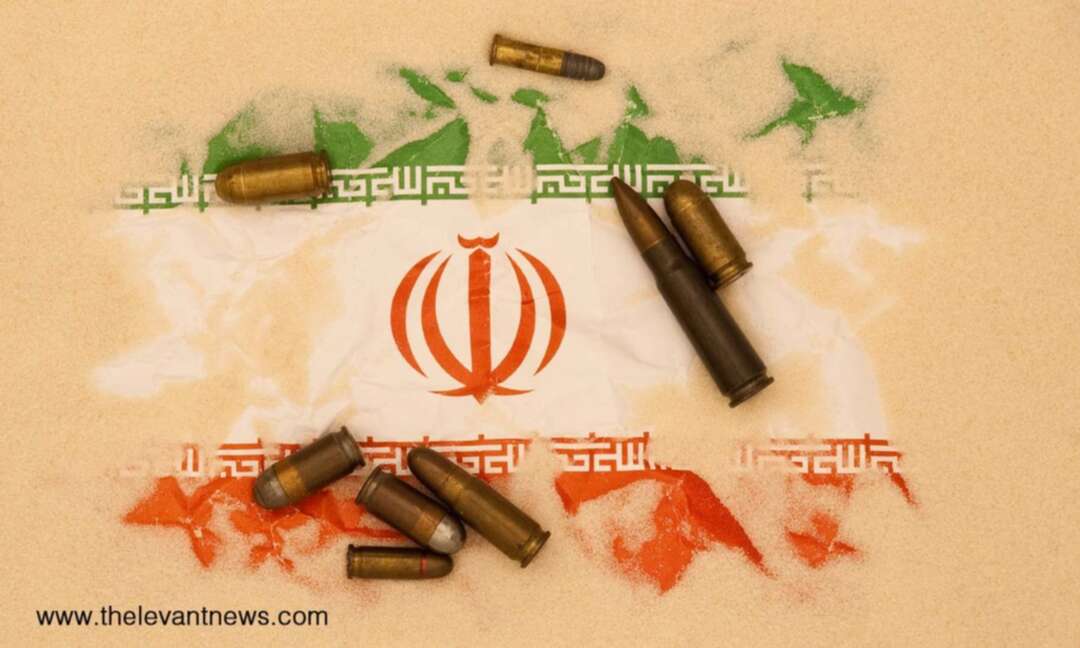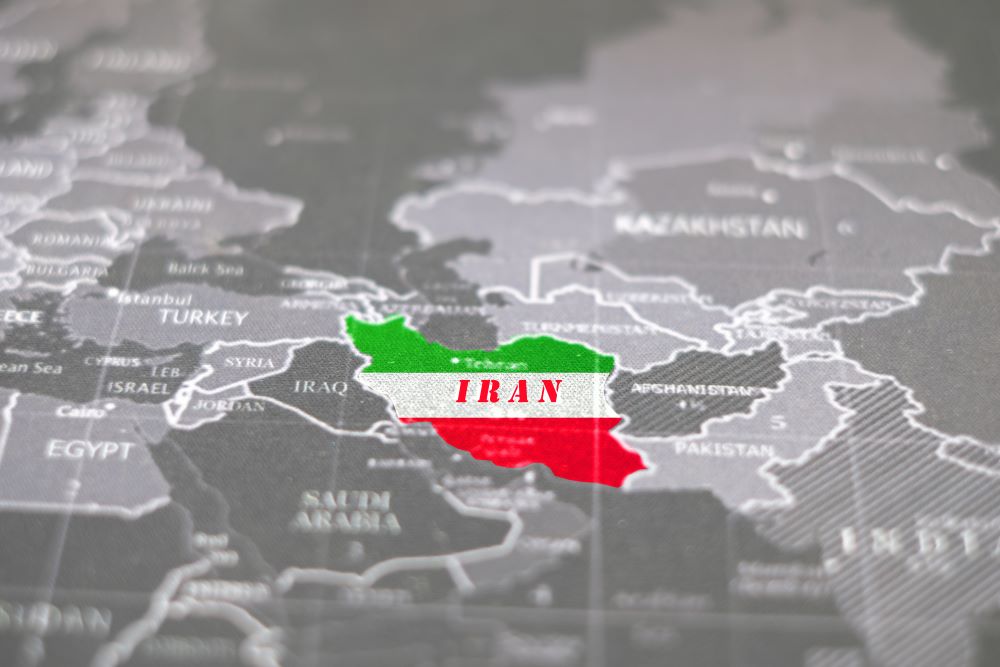-
Foreign policies of the Iranian regime toward the neighboring countries

On the other hand, several of Iran's military army and Revolutionary Guards officials offered harsh and provocative responses to Ilham Aliyev's criticism and implicitly threatened military actions against Azerbaijan. Furthermore, in his speech on Saturday, October 2, Khamenei offered an indirect warning to Ilham Aliyev by saying "those who rely on other countries would soon be slapped".
Of course, no one expects a large-scale or even limited conflict between Iran and Azerbaijan because neither side is capable of carrying such a conflict. Since Russia's influence in the countries of the region, any kind of military conflict must most likely have Russia's green light. And since Russia has close relationships with both countries, a military conflict between Iran and Azerbaijan is very improbable.
However, the recent tension between Iran and Azerbaijan is another testimony to the Iranian's regime aggressive and expansionist foreign policies. Iran's meddling in the affairs of its neighboring countries is a bitter truth. Many examples in the history of four decades of the mullahs’ reign prove this point. This issue has reached an end that most countries of the region have repeatedly expressed their concerns.
This is part of the Iranian regime's foreign policy doctrine and a path to not only spread its hegemony throughout the region but also to divert Iranian attention from internal problems. Because they have neither the power nor the intention to solve these problems.
Iran's support of terrorism and turmoil in other countries, which by the way, has been very costly for Iranian people, has forced the regime to allocate much of Iran's money and resources to support its proxies in neighboring countries and beyond.
By doing so, the local economy has almost been destroyed, and despite Iran being one of the wealthiest countries around the world, (in terms of natural resources by having the third-largest oil reserves and the second-largest gas reserves), more than 80% of its people live below the poverty line. Iran's economy is experiencing an inflation rate of more than 50% which ranks the seventh highest in the world.
If we take a brief look at Mullahs regime’s foreign policies and relations with other countries, we will see that less than two years after the Iranian revolution, because of provocations of Khmomeini and his meddling in Iraq to overthrow its government, he paved the way for an eight-year war between the two countries, causing major damages and losses to people of Iran and, of course, Iraq, each of which suffered nearly one million war casualties.
The damage from the eight-year war, which Khomeini refused to stop, is estimated at more than $ 1,000 billion on the Iranian side alone, regardless of human casualties. Despite such a high financial and human toll, Khomeini insisted on continuing the war, hoping to overthrow the Iraqi government. In the end, he unwillingly agreed to a ceasefire because he felt the continuation of war could bring his regime to a collapse. An early ceasefire had been repeatedly suggested by other Persian Gulf countries that included lump-sum compensation to Iran.
Khomeini was by no means willing to accept an early ceasefire, but the passage of time forced him to accept the ceasefire after eight long and bloody years. Because of his ignorance and insistence on the continuation of war, the compensation idea never materialized.
In another example, some militias(so-called university students) with Khomeini's support, contrary to all international norms, seized the US embassy in Tehran in 1979 and held the embassy staff hostage for 444 days. This action resulted in the isolation of Iran in the world and Billions of dollars in material damage.
In another example, the attack on the British embassy in Tehran in 2011 resulted in the severance of diplomatic relations between Iran and Britain for a while and a few million dollars damage.
 Iran
IranThe same thing happened with Sudi Arabia when some regime's thugs attacked the SA embassy in Tehran and their consulate in Mashhad in 2015. As a result, Saudi Arabia closed its embassy in Tehran and severed all its diplomatic relations with Iran.
This story has been repeated in relation to other countries such as Kuwait, Bahrain ... and has led to the severance of diplomatic relations with these countries.
It is noteworthy that Khamenei and the regime officials did not learn from any of these incidents that led to irreparable damage to Iran and its people. On the contrary, they kept repeating them with other terrorist activities. As a result, Iran has become one of the most isolated countries in the world.
Currently, Iran does not have good relations with almost any of its neighboring countries. If Iran had opted to treat its neighboring countries based on mutualism, it could have benefited amply in all areas.
Case in point: The Republic of Azerbaijan because of its numerous historical, ethnic, and religious ties with Iran and the fact that the Azeri-speaking population of Iran is even more than twice the population of the Republic of Azerbaijan and that the Republic of Azerbaijan has the largest number of Shiites after Iran, i.e. more than 85% of its population are Shiites. And in fact, until the end of the nineteenth century, Azerbaijan was part of Iran, and many people there originally considered themselves part of Iran.
With such cultural closeness, Iran could have benefited much from its northern neighbor, Azerbaijan, but unfortunately, due to the mullahs' regime's unwise foreign policies, they tried to advocate for a wider religious influence in Azerbaijan and lost a great opportunity.
Taking advantage of Iran's wrong approach, Turkey, although it did not have such historical and cultural ties with Azerbaijan, was able to gain from this.
It remains to be seen how this tension between Iran and Azerbaijan will end to the detriment of the Iranian people. This is another reason why the great majority of Iranians want regime change and establish a secular government in Iran. They made this clear by boycotting the sham presidential election last June. But since no dictatorship is willing to relinquish power, this regime will inevitably be changed by another Iranian uprising.
by: Cyrus Yaqubi
Cyrus Yaqubi is a Research Analyst and Iranian Foreign Affairs Commentator investigating the social issues and economy of the Middle East countries in general and Iran in particular.
You May Also Like
Popular Posts
Caricature
BENEFIT Sponsors BuildHer...
- April 23, 2025
BENEFIT, the Kingdom’s innovator and leading company in Fintech and electronic financial transactions service, has sponsored the BuildHer CityHack 2025 Hackathon, a two-day event spearheaded by the College of Engineering and Technology at the Royal University for Women (RUW).
Aimed at secondary school students, the event brought together a distinguished group of academic professionals and technology experts to mentor and inspire young participants.
More than 100 high school students from across the Kingdom of Bahrain took part in the hackathon, which featured an intensive programme of training workshops and hands-on sessions. These activities were tailored to enhance participants’ critical thinking, collaborative problem-solving, and team-building capabilities, while also encouraging the development of practical and sustainable solutions to contemporary challenges using modern technological tools.
BENEFIT’s Chief Executive Mr. Abdulwahed AlJanahi, commented: “Our support for this educational hackathon reflects our long-term strategic vision to nurture the talents of emerging national youth and empower the next generation of accomplished female leaders in technology. By fostering creativity and innovation, we aim to contribute meaningfully to Bahrain’s comprehensive development goals and align with the aspirations outlined in the Kingdom’s Vision 2030—an ambition in which BENEFIT plays a central role.”
Professor Riyadh Yousif Hamzah, President of the Royal University for Women, commented: “This initiative reflects our commitment to advancing women in STEM fields. We're cultivating a generation of creative, solution-driven female leaders who will drive national development. Our partnership with BENEFIT exemplifies the powerful synergy between academia and private sector in supporting educational innovation.”
Hanan Abdulla Hasan, Senior Manager, PR & Communication at BENEFIT, said: “We are honoured to collaborate with RUW in supporting this remarkable technology-focused event. It highlights our commitment to social responsibility, and our ongoing efforts to enhance the digital and innovation capabilities of young Bahraini women and foster their ability to harness technological tools in the service of a smarter, more sustainable future.”
For his part, Dr. Humam ElAgha, Acting Dean of the College of Engineering and Technology at the University, said: “BuildHer CityHack 2025 embodies our hands-on approach to education. By tackling real-world problems through creative thinking and sustainable solutions, we're preparing women to thrive in the knowledge economy – a cornerstone of the University's vision.”
opinion
Report
ads
Newsletter
Subscribe to our mailing list to get the new updates!






















